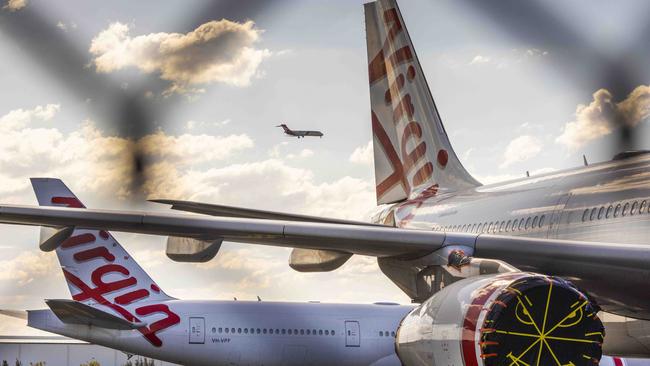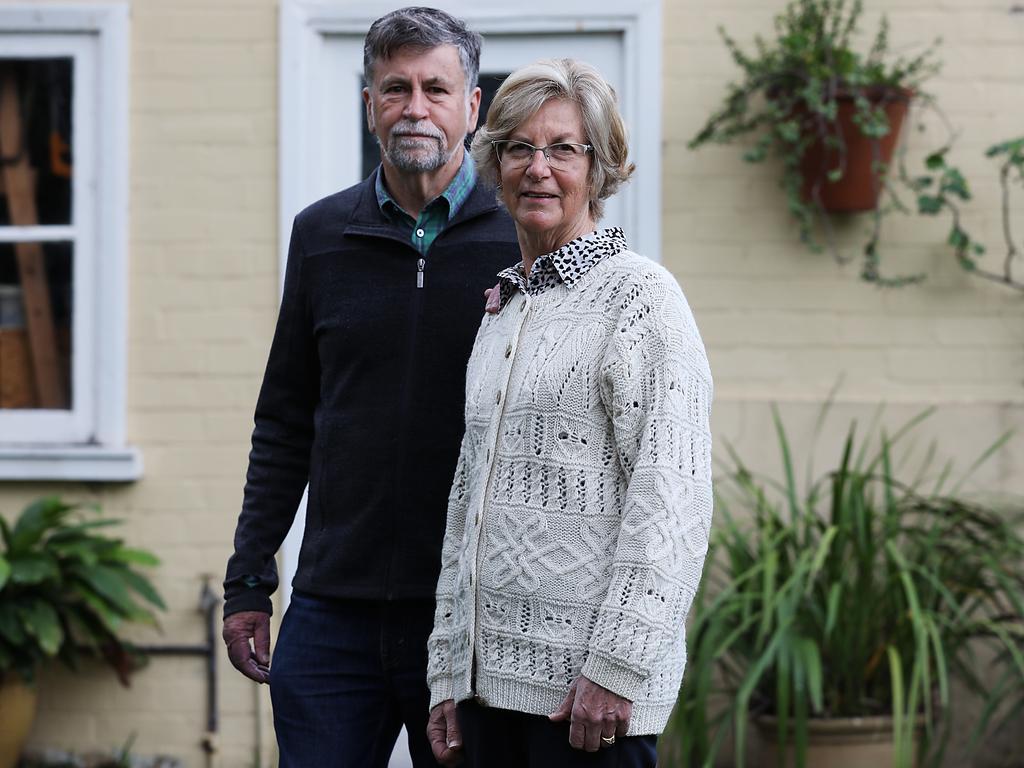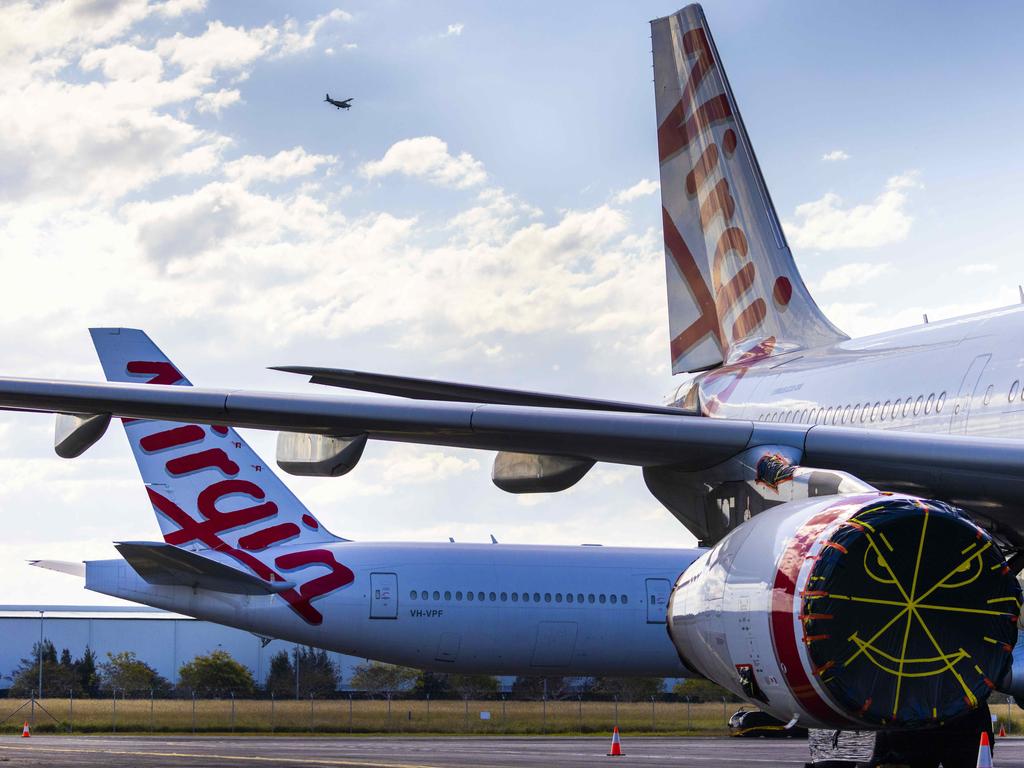
But Strawbridge has publicly defended the airline’s directors, saying they acted appropriately by doing everything they could to raise funds from shareholders, the market and state and federal governments as its revenues dried up, before finally putting the company into administration.
“Virgin was hit hard when the government took capacity out of the market with travel restrictions imposed in March,” he said. “The board acted appropriately by moving quickly to try to find funding for the airline.
“As soon as that wasn’t available, they sought the protection of administration.”
Strawbridge’s 192-page report makes uncomfortable reading for directors of Virgin and other ASX-listed companies that have also been hit hard by the pandemic.
As Strawbridge says in his report, directors’ liability for trading while insolvent was limited to the days from March 18 or March 22 until March 25, when the federal government moved to protect directors from potential legal actions by trading while insolvent as a result of the pandemic.
Strawbridge found that the earliest date of insolvency for Virgin was March 22, but it could have traded while insolvent from March 18.
But the report, which describes the desperate bid for funds by Virgin directors in the weeks leading up to the April 20 administration, makes it clear that directors were faced with extraordinary circumstances beyond their control when the airline’s capacity plunged as a result of travel restrictions.
It says its investigations have not revealed any breaches of directors’ duties under several sections of the Corporations Act.
“The circumstances leading up to the insolvency of the (Virgin group of companies) was unique,” it says.
“We have concluded that the date of insolvency was due to an immediate and catastrophic reduction in capacity in response to the announcements that were made by respective state and federal governments on restrictions on domestic travel in Australia in response to the coronavirus.
“The restrictions on travel and reduction in capacity meant that the Virgin Group would likely be unable to pay its debts as and when they fell due.
“The directors undertook immediate steps to seek additional funding to avoid the business being placed into voluntary administration but were not successful in doing so.
“When all options for funding were exhausted, the directors resolved to place the group into voluntary administration.”
The report estimates that the potential loss to creditors of the company from trading while insolvent from March 18 to March 25 could be between $17m and $35m.
Sue for damages
But it points out that directors would have strong defences against any legal action by creditors if they sought to sue for damages over these amounts.
The report states that Virgin is currently insolvent and is only surviving on the $125m in interim funding injected by private equity group Bain when it signed a deal to buy the airline in late June.
The report, which says that Virgin’s $1.9bn in unsecured creditors will only receive between 6c and 13c in the dollar if they vote for Strawbridge’s proposal next week backing the Bain bid, details the actions taken by directors as they responded to travel restrictions imposed in March.
Directors undertook “extensive lobbying” of governments in Victoria, Queensland and NSW as well in Canberra for funding as they moved to cut back domestic flights and stop international travel in response to government travel restrictions.
The company set up a data room and made “targeted approaches” to potential private investors. It also sought funding from its major shareholders. “Attempts to obtain support from the airline’s shareholders were unsuccessful,” the report says.
In an interview with the Australian, Strawbridge said most companies facing insolvency in other circumstances had a much longer time frame to assess the situation and make hard decisions.
But the travel restrictions put directors of Virgin under extraordinary time pressure to act.
But his report also makes it clear that Virgin was not well placed to withstand the pandemic, its balance sheet weakened by debt from accumulated net losses of $2.2bn from the 2008-09 financial year to the last six months of 2019.
“Our view is that the Virgin Group’s difficulties were largely due to the inability of the Virgin balance sheet to withstand the immense financial impact caused by COVID-19,” the report says.
“The Virgin Group’s financial difficulties were due to an already highly leveraged balance sheet, resulting from years of past losses, that was unable to support the business impact caused by COVID-19.”
The report notes that after Paul Scurrah took over as chief executive in early 2019, he began a strategic review of the airline, including looking at ways to cut costs and streamline the business.
But he also moved to further increase Virgin’s debt load by a $325m listed bond raising in Australia and another fund raising in the US in November last year to pay for the $700m cost of buying out the remaining 35 per cent of frequent-flyer business Velocity from private equity group Affinity Equity Partners.
It is those bondholders, including thousands of retail investors, who decided to back Scurrah, believing in his plan to turn the airline around, who learned on Tuesday that they have lost almost all their money.








Virgin Australia may have traded while insolvent from as early as March 18, as the airline went into a tailspin as a result of drastic government-imposed travel restrictions in response to the coronavirus, finally going into administration on April 20, a report to creditors by administrator Vaughan Strawbridge has found.